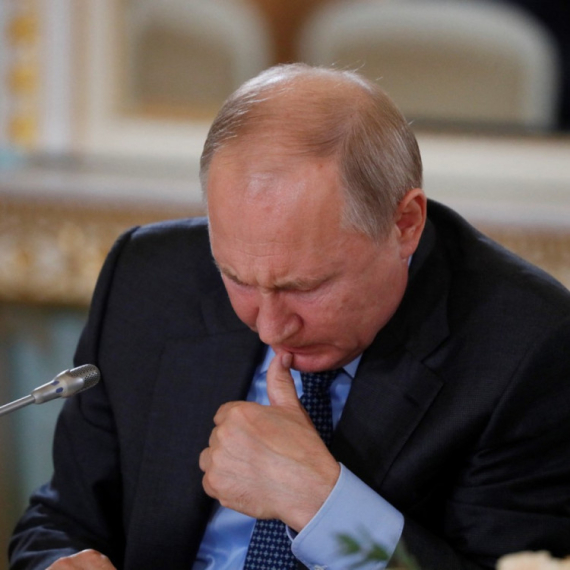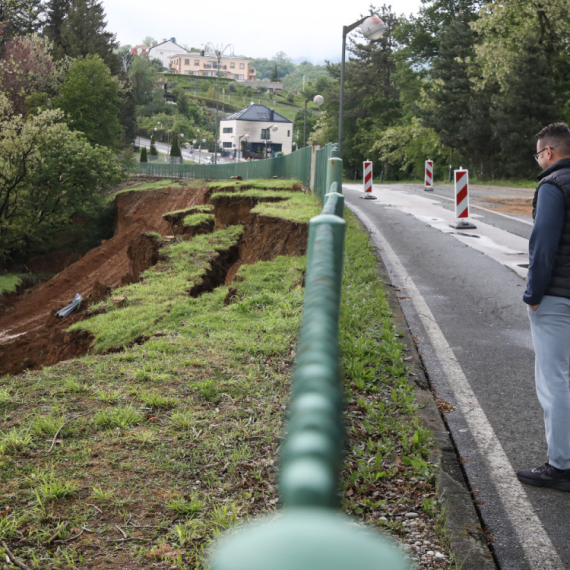SAA implementation under way
Implementation of the Serbia-EU Interim Trade Agreement begins in Serbia today, following the entry into force of changes to the Law on Customs Tariffs.
Friday, 30.01.2009.
10:06

Implementation of the Serbia-EU Interim Trade Agreement begins in Serbia today, following the entry into force of changes to the Law on Customs Tariffs. Application of the document will mean cheaper products from 27 EU member-states. Today, customs on automobiles will be 50 percent lower. Conversely, the increase in excise taxes means that fuel, cigarettes and beer will be more expensive. SAA implementation under way The implementation of the Interim Trade Agreement calls for a gradual reduction, and then full abolishment of customs charges on the import of goods from the EU. Under the agreement, customs taxes in the first year will be five to 20 percent lower than the current level, with customs on raw materials and repro-materials 70 percent down compared to 2008. One of the key benefits, according to government officials, will be customs on cars, which will be slashed by half. Prime Minister Mirko Cvetkovic reiterated that the ultimate effect would be cheaper prices for European products. “In accordance with the agreement that foresees a successive decrease in customs on imported products from the European Union, the first raft of reductions will be applied to various products, and there is an entire list of these products,” Cvetkovic said. “In the end, it will lead to people and businesses spending less, and certain products will be cheaper—that’s to say, production input from the European Union will be less expensive,” he explained. This year, customs on certain agricultural products produced outside Serbia will be scrapped, though customs on other products will remain until after 2015. Customs on industrial products will be completely abolished after six years. The implementation of the agreement will mean lower customs revenue, which the government will offset by increasing excise taxes. The excise increase will mean higher prices for fuel, starting from today. Cigarette prices have also risen by two dinars and are expected to rise a further two percent. Beer and coffee prices will rise by one dinar per liter and 10 percent respectively. Some economists, however, believe that the budget projections are unrealistic and optimistic, and that the 2009 budget is unfeasible. “It’s highly unlikely that the 2009 budget will be able to be implemented, as it was defined. In both the income and spending sense, there is very little room for maneuver. Unfortunately, taxes and contributions cannot be cut any more, which is what businesses are most interested in,” economist Jurij Bajec states. “At the same time, not much can be done, unfortunately, when it comes to increasing public spending in real terms, because it is how it is, and it has already been cut as much as it could have been,” he adds. Finance Minister Diana Dragutinovic said that the government had not made any new calculations regarding budget losses that would result from the implementation of the trade agreement, and that recent trends indicate that imports are slowing. Archive photo of the signing of the SAA (Fonet archive)
SAA implementation under way
The implementation of the Interim Trade Agreement calls for a gradual reduction, and then full abolishment of customs charges on the import of goods from the EU. Under the agreement, customs taxes in the first year will be five to 20 percent lower than the current level, with customs on raw materials and repro-materials 70 percent down compared to 2008.One of the key benefits, according to government officials, will be customs on cars, which will be slashed by half. Prime Minister Mirko Cvetković reiterated that the ultimate effect would be cheaper prices for European products.
“In accordance with the agreement that foresees a successive decrease in customs on imported products from the European Union, the first raft of reductions will be applied to various products, and there is an entire list of these products,” Cvetković said.
“In the end, it will lead to people and businesses spending less, and certain products will be cheaper—that’s to say, production input from the European Union will be less expensive,” he explained.
This year, customs on certain agricultural products produced outside Serbia will be scrapped, though customs on other products will remain until after 2015. Customs on industrial products will be completely abolished after six years.
The implementation of the agreement will mean lower customs revenue, which the government will offset by increasing excise taxes.
The excise increase will mean higher prices for fuel, starting from today.
Cigarette prices have also risen by two dinars and are expected to rise a further two percent.
Beer and coffee prices will rise by one dinar per liter and 10 percent respectively.
Some economists, however, believe that the budget projections are unrealistic and optimistic, and that the 2009 budget is unfeasible.
“It’s highly unlikely that the 2009 budget will be able to be implemented, as it was defined. In both the income and spending sense, there is very little room for maneuver. Unfortunately, taxes and contributions cannot be cut any more, which is what businesses are most interested in,” economist Jurij Bajec states.
“At the same time, not much can be done, unfortunately, when it comes to increasing public spending in real terms, because it is how it is, and it has already been cut as much as it could have been,” he adds.
Finance Minister Diana Dragutinović said that the government had not made any new calculations regarding budget losses that would result from the implementation of the trade agreement, and that recent trends indicate that imports are slowing.

























































Komentari 1
Pogledaj komentare